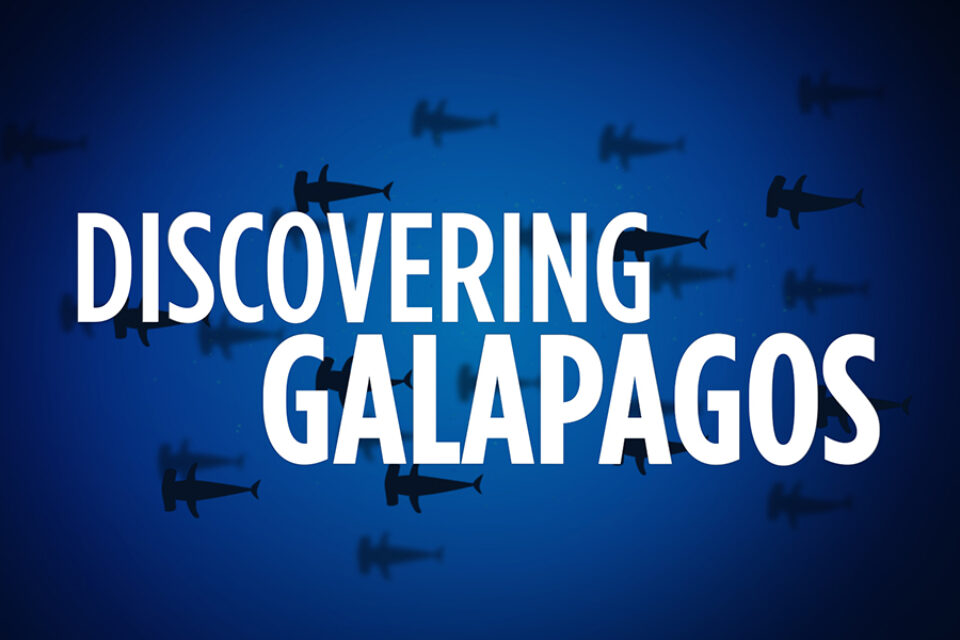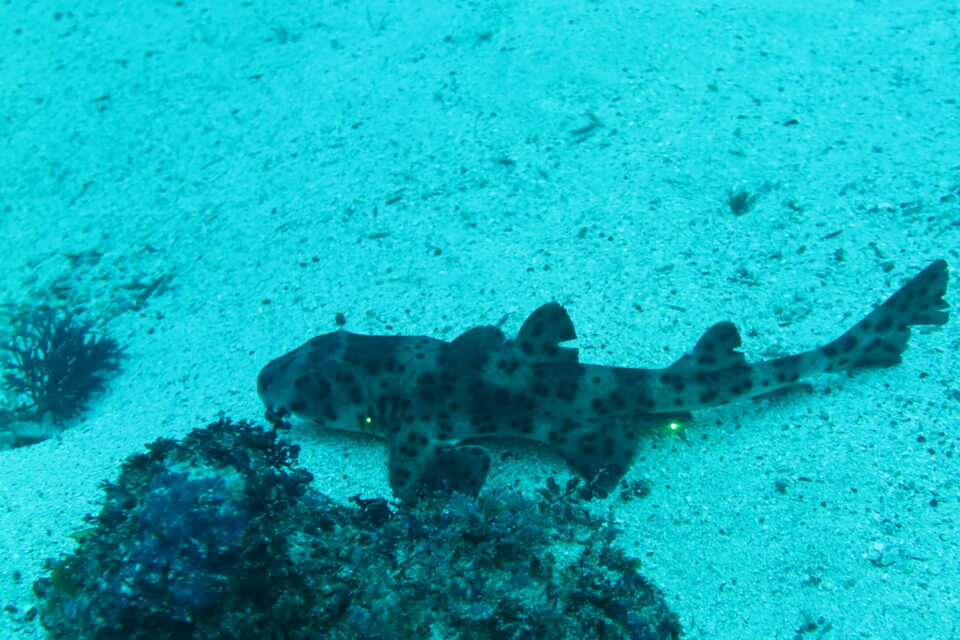

My time as a researcher for GCT: investigating citizen science projects in Galapagos
Masters student Millie tells us more about her internship at GCT, and her interesting research on citizen science in the Galapagos Islands.
Millie is a Master’s student at the University of Exeter studying Global Sustainability Solutions. As part of the course, Millie had the opportunity to undertake an internship with Galapagos Conservation Trust (GCT). Here she tells us more about her time working for GCT, and her interesting research on citizen science in the Galapagos Islands.
Let me take you on an adventure. Picture the scene… you are walking barefoot along a clear sandy beach, feeling the sand squish between your toes and the water gently run over them. The sun is shining, the waves are crashing, the birds are cawing, and the feeling of bliss fills you. This could be many places in the world, but today we are visiting the Galapagos Islands. The plan is to start with diving in the deep blue with sharks and rays, then watching birds soar through the sky and finally join some friends for an afternoon at the beach. Are you coming?
It does sound nice, doesn’t it, and I bet you thought this was just a standard holiday trip, but what you might not have realised is that important science is hidden within all of this. What I’m talking about is citizen science.
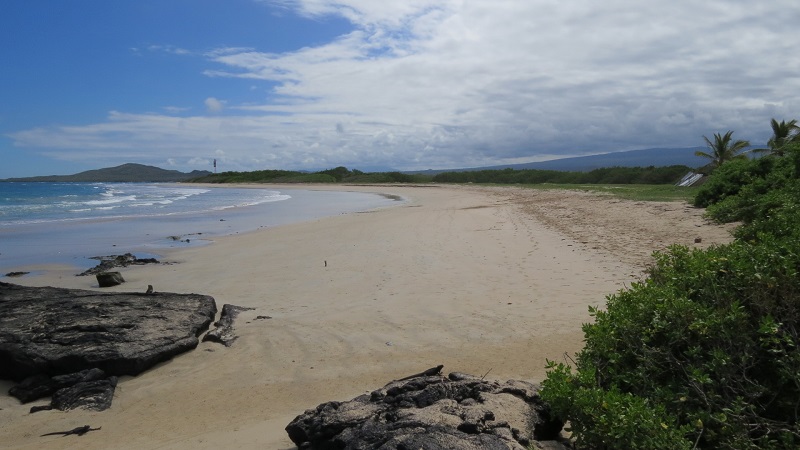
What is citizen science?
Citizen science is when people like you and me, who are not paid scientists, help in scientific research. This could be anything from taking a picture of a shark and uploading it to an app (Shark Count) to taking photos of the plastic you found when you pick up a piece of litter from a beach (through Galapagos Conservation Trusts Garbology project). These sorts of projects can be beneficial to scientific research as they help collect vital data over a long time.
This is where my research comes in. I wanted to look at how many citizen science projects have been running in Galapagos. What sorts of projects are they? And what barriers to participation and opportunities for improvement are there? To answer these questions, firstly, I needed to gather as much information as possible. I ran a workshop with GCT, researched online, and contacted project leaders. I noted whether the project is in Spanish or English, or both. I also looked at social media around projects, and the information available on their social media pages. My next step was to compare the projects by how well they communicate with the public, how easy they are to take part in, how important are the project outcomes and how engaging and fun they are.
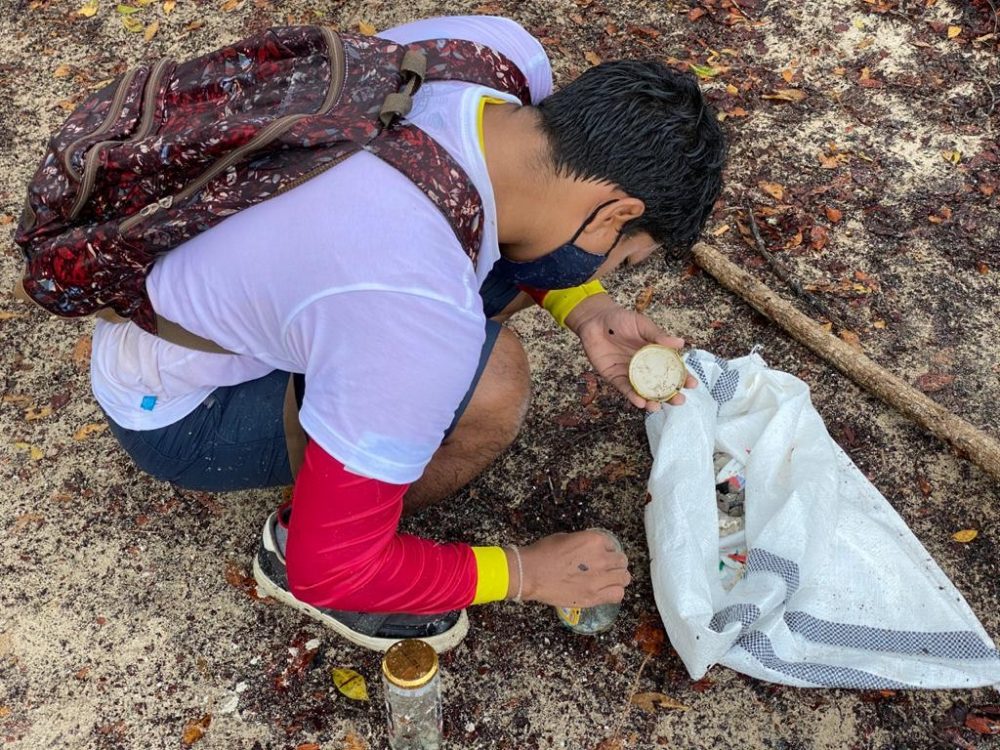
My research findings on citizen science
From my research, I found that there is a lot of potential for citizen science in Galapagos to grow. For me, this means involving the local community more, so that citizen science is more sustainable over time, as most projects seem to be aimed at tourists. This isn’t necessarily a bad thing as huge numbers of tourists visit the Islands each year, but as we have seen with the pandemic, tourism can end suddenly, which then affects the research. Another opportunity is, therefore, involving tourists differently, through projects based online like the recent Iguanas from Above project. This is what Amy MacLeod, the project leader had to say about the future of citizen science.
“I think it will grow and continue to be used in new and creative ways. I think it is a wonderful way to give the wider world an insight on the Archipelago without having everyone physically visit, and I think it has great potential for democratising access to science and conservation.”
Amy MacLeod
Another finding is that the communication of projects in general needs to be improved. Citizen science is relatively new to Galapagos. Therefore, we need to teach more people what it is, why it is important, and how the projects give back to them. Unfortunately, this is not always clear. Projects should really look into how they benefit the community that is collecting the data. Does the project educate and inform? Does it invest in the community? Is it a fun activity to take part in? These questions are crucial when thinking about a citizen science project so that scientists don’t forget about the real people doing this essential scientific work and recognise their efforts. Some projects in Galapagos already do this well, which is great to see. One project is Shark Count, which has recorded over 90,000 shark sightings in Galapagos. Supported and promoted by GCT, the Shark Count App, developed by Universidad San Francisco de Quito, Galapagos Conservancy and Galapagos National Park and the data collected is used in our Endangered Sharks of Galapagos programme aiming to support shark conservation and helps dive guides and tourists see more wildlife on their trips!
So now what?
Galapagos Conservation Trust will be able to use my research to improve their current citizen science projects, make sure there is better communication between all Galapagos projects, and get more people involved in science.
Feeling inspired, why don’t you give it a go?
Visit Galapagos Conservation Trust’s Citizen Science Portal.
Related articles

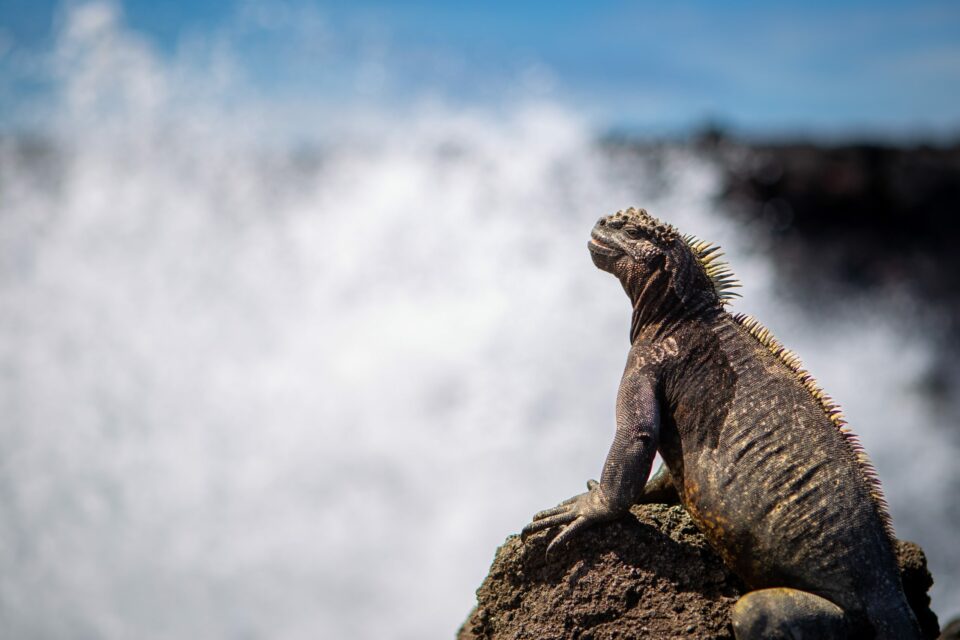
Iguanas from Above: Citizen science in action
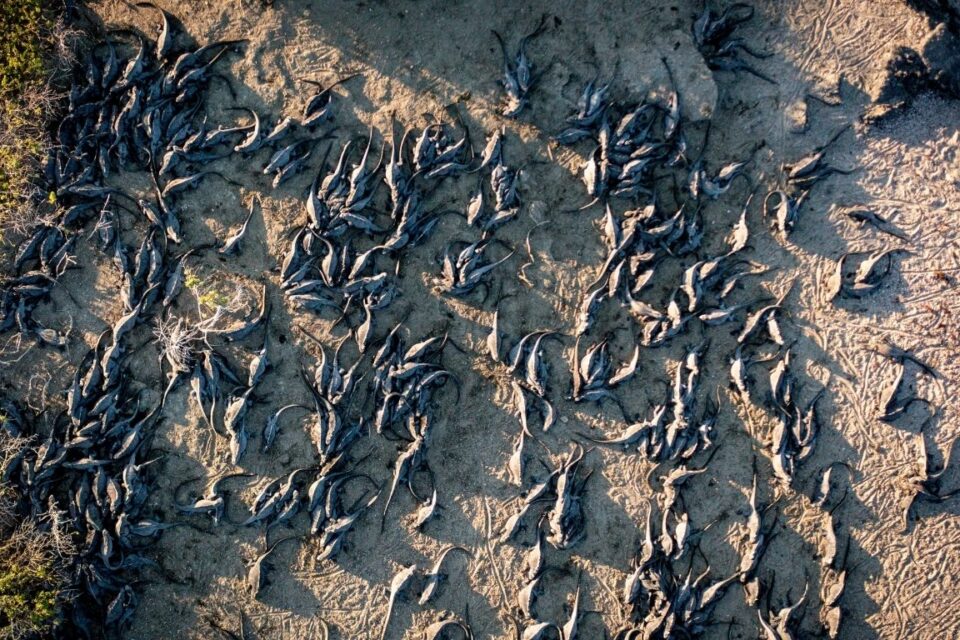
Project Update: Iguanas From Above
